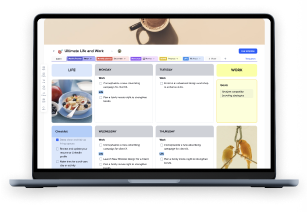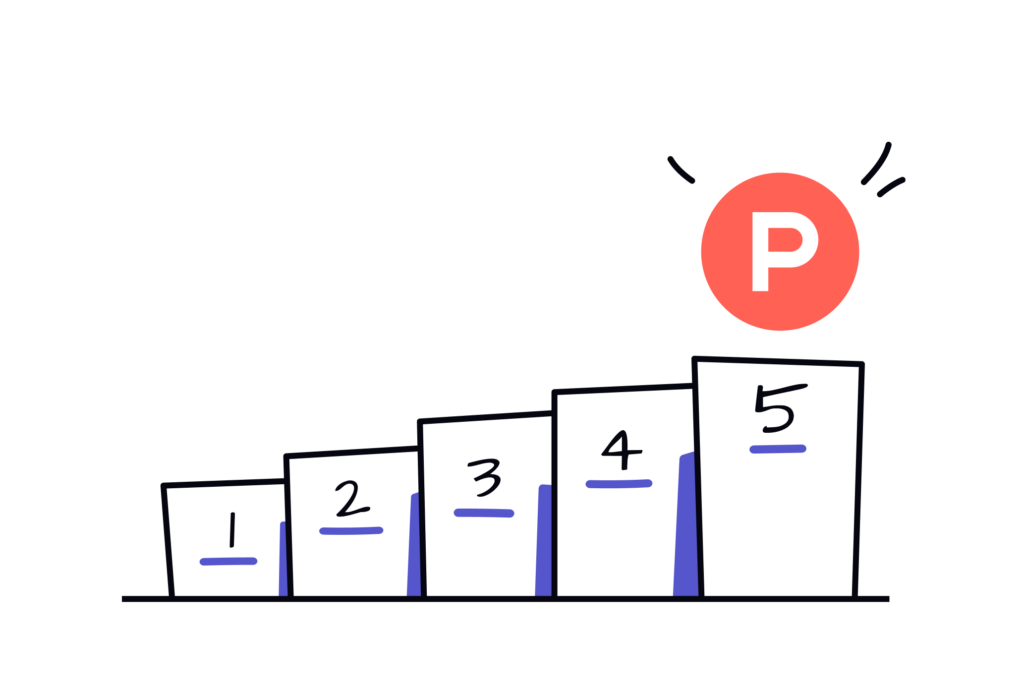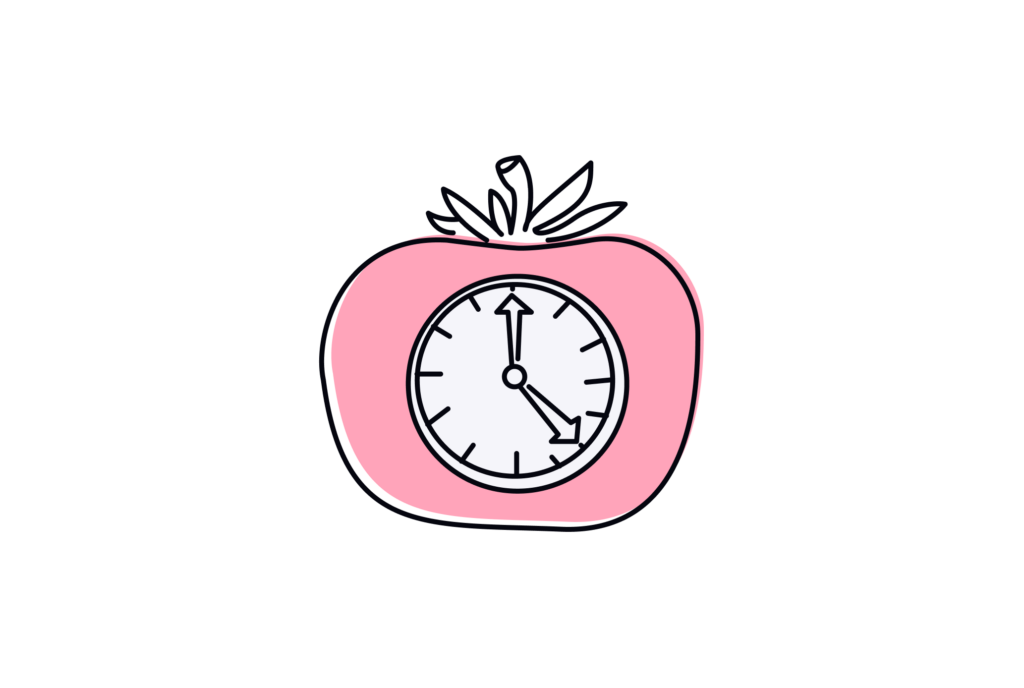Whether you have heard something or nothing at all about self-management, you can relate to this scenario. You’ve just turned off your alarm and already feel overwhelmed with tasks. Your email inbox is overflowing, your project deadlines are looming, and your personal to-do list is a mile long. You don’t want to leave your bed and face all these tasks and challenges. Besides, there is something you definitely have forgotten about, and this only adds a few more points to your stress.
This story is all too familiar in our fast-paced world, where managing productivity effectively becomes a daily challenge for even the most motivated and driven people.
In this article, we explore how honing self-management skills, with a little help from technology, can transform our approach to productivity, offering practical insights for a more organized, efficient, and fulfilling life.
Defining Self-Management and Self-Management Skills
Self-management is at the heart of overcoming daily challenges. It is the art of managing your thoughts, actions, and feelings to enhance productivity and achieve a balanced life. Once tamed in a stream of chaotic tasks, our brain and emotional intelligence can breathe freely the moment healthy self-management steps into your life.
Have you ever noticed that some people are more organized than others? It might seem they were born this way. Thankfully, if you weren’t, you can easily learn this skill and even reach better results than people who don’t look for new ways to increase their effectiveness.
Self-management involves taking responsibility for your behavior and well-being by regulating every aspect, or those of the utmost importance, of your life. It encompasses a broad range of skills and practices that allow individuals to achieve their goals and live in harmony with their values and societal expectations, including self-regulation, strong sense of responsibility, self development, etc.

Why do people need self-management in their lives?
Self-management helps individuals stay strong on the ground. When they face something that is far from their usual routine, it won’t dismantle the whole life organization they have built for years. They can maintain focus on what is important at the moment even though they are under pressure.
Strong self-management skills impact not only people’s well-being but also enrich relationships and promote individual growth, laying a foundation for lifelong success and satisfaction. In other words, your loved ones will thank you for choosing this way, too.
What is bad self management?
It might look like self-management is all about changing your life for the better. However, there is a huge difference between healthy self-management and the desire to control every tiny detail and the inability to relax sometimes and take it easy.

Self-awareness and a deep understanding of your current capacity are very important when starting self-management. You need to be ready that sometimes our plans don’t work, and that is totally okay.
Great self-managers know that being hard on yourself is never an option and won’t bring any positive outcomes to your everyday life, relationships with your loved ones, professional life, professional relationships, etc.
Keeping a positive outlook is a great strategy when you start developing new skills and improve your self management and self awareness.
When you’re feeling overwhelmed only because you’re watching your favorite TV series, or taking breaks, or skipping some daily tasks you’re not in the mood to do right now, it doesn’t necessarily mean you’re not organized or that you all of a sudden stopped being organized.
A positive mindset can enhance motivation, resilience, and overall well-being, which are essential for effectively acquiring and honing your current managing skills and self-awareness. It fosters a growth mindset, allowing individuals to embrace challenges, learn from setbacks, and persist in their efforts toward personal and professional development. Therefore, cultivating a positive outlook can significantly contribute to success in these endeavors.
The Significance of Personal Self-Management
The ability to manage oneself effectively is an essential aspect of being successful in today’s world, where distractions abound and pressures mount. If you’re a novice to the idea, don’t worry. In some sense, all of us manage ourselves day in and day out wherever we go, albeit with varying degrees of success

Self-management skills are the linchpins of a harmonious and fulfilling life, enabling us to navigate challenges, capitalize on opportunities, and achieve our most cherished goals. By mastering these skills, we can get:
- Increased productivity
- Better time management skills
- Increased accountability
- Enhanced self-awareness
- Decreased stress levels
- Improved self-discipline and self-control
- Enhanced decision-making skills
- Improved emotional regulation
- Enhanced self-development
- Increased autonomy
- Improved relationships
- Contributed to goal achievement
- Enhanced self-motivation
- Improved our self-care routine
- Enhanced problem-solving skills
- Polished our strategic planning
That is only a short list of what a person gains with developing self-management skills.
Whether you work in a corporate setting, are a stay-at-home mum, freelancer, or are a student, self-management can work for you and bring the needed results. The beauty of this approach lies in its versatility and flexibility. Anyone will find something for themselves to reach their goals faster and easier.
Overall, introducing self-management into your life can lead to a more organized, fulfilling, and successful existence, empowering you to take control of your destiny, seize every chance life brings you, and achieve your fullest potential.
Key Personal Self-Management Skills
Self-management doesn’t exist on its own. It consists of many smaller skills, which, if balanced and polished, bring you the desired results.

Here are several core skills that are essential for effective self-management:
Time Management Skills
Prioritizing tasks and managing time efficiently to meet deadlines and achieve goals. This is one of the basic skills for efficient self-management.
Stress Management
Identifying stressors and adopting strategies to manage stress for optimal health and productivity.
Self-awareness
Recognizing one’s strengths, weaknesses, values, and goals. Effectively managing oneself is always about being self-aware, and increased self-awareness guarantees that burnout has no chance against you.
Goal-Setting
Defining clear, achievable goals and developing plans to reach them. Whether we’re talking about simple tasks or huge and very important tasks, the ability of goal alignment is crucial.
Self-Motivation
Cultivating inner drive and maintaining motivation to pursue goals, even in the face of obstacles. Intrinsic motivation help people finish tasks only because they find it interesting. No need to think of a reward to motivate yourself deliberately.
Self-care
The ability to consistently care for both your body and mind, even when overwhelmed with tasks, is crucial. This skill encompasses more than just applying moisturizer before bed; it includes regular exercise, dedicating time to self-love, and more.
Self-discipline
Managing your impulses, feelings, and behaviors is key to reaching your goals. It involves being aware of your immediate reactions and choosing to respond in ways that align with your long-term objectives. This skill is crucial for personal and professional success because it allows you to navigate challenges and make decisions that benefit your future.
Personal responsibility
The understanding that you are accountable for your actions, decisions, and behavior, and you must accept the consequences that arise from those actions.
Decision-making skills
The ability to make decisions regardless of the circumstances. You can clearly see the bigger picture and can evaluate your chances, potential outcomes, benefits, and hardships without fear of where your decision might lead you.
Various apps have emerged to help people support these skills and direct impact they put into organizational matters. They are designed to assist individuals in managing their time, reducing stress, setting and tracking goals, and staying motivated. However, not all of them are interchangeable, and their functionality may differ from case to case.
The Marriage of Self-Management and Technology
The landscape of self-management tools and apps, such as xTiles, is ever-evolving, offering innovative solutions to help individuals cultivate and maintain their self-management skills. These technologies provide platforms for organizing tasks, setting reminders, tracking progress, and even meditating to reduce stress, making the journey toward effective self-management more accessible and engaging.
Self-management enthusiasts sometimes combine a few apps just to satisfy all of their needs, which might be quite overwhelming, adding one more challenge. An app for daily planning or a calendar, an app for taking notes, an app for storing interesting content, an app to plan meals or gym sessions, etc., can lead to losing focus and attention.

Strategies for Seamlessly Integrating Apps
Starting something new might be a challenge. Finding the right tools for time management or self-motivation might be hard due to the vast number of such apps in the market these days. If you’re new to all of this, someone who hasn’t even opened the Calendar on their phone (except by accident to close it immediately), it’s recommended to start with something that won’t make you hate self-management.
xTiles can serve both newcomers due to its easy interface and tough self-managers who prefer to build multi-level plans to manage their tasks and routines due to its flexibility and wide range of features.
However, no matter what app you choose, the rules to get the best results will be pretty much the same. To maximize the benefits of self-management apps, consider the following strategies:
Start Small
Choose one area to improve and select an app that addresses that specific need at a time. It can be either a basic skill like time management or something more specific that you feel lacking.
Baby steps will be more beneficial than trying to do everything at once. Additionally, it will help to develop healthy relationships with yourself.
If you’re not sure about this, it’s better to choose some sphere of your life that won’t have a huge impact on your career or relationships. Save important projects for later, when you learn how to self-manage your smaller and less important areas.
Set Realistic Goals
Use apps to set achievable goals, making sure to track and celebrate progress. If setting realistic goals is quite a challenge for you at the moment, you may try the SMART approach. Consider if the goals you want to set are specific, measurable, achievable, relevant, and time-bound. If they meet all these criteria, don’t waste your time and start working on your goal immediately.
Setting goals that are realistic and achievable will also contribute to better stress management.
A long to-do list often results from setting unrealistic goals. If, for any reason, you can’t be in two places at the same time, it’s better to focus on fewer tasks and complete them perfectly rather than dividing your attention among numerous tasks and accomplishing nothing.

Routine Integration
Incorporate app usage into your daily routine to ensure consistency and effectiveness. Make it a habit to use it daily. When your finger automatically tries to tap on the Instagram or TikTok icon, make yourself check your schedule first to watch your daily dose of funny videos with dogs with a clear conscience.
This new habit will help your stay productive and develop new personal and professional skills, such as better emotional regulation, better understanding of your tasks, better focus, etc.
Explore and Experiment
Don’t hesitate to try different approaches to planning your daily schedule, making your to-do lists, gathering relevant and interesting information, etc. For example, in xTiles, you can use various features to make your workspace truly yours. Collections, nested tiles, Google Calendar integration, WebClipper, tasks, widgets, etc., will help organize a friendly and safe space for developing your skills while learning your needs and abilities.
Different situations require different solutions. So, your personal development should be marked by flexibility and understanding that even the most important tasks are less important than your mental health and well-being.
By embracing the principles of self-management and leveraging the power of technology, we can unlock our full productivity potential, leading to a more organized, efficient, and fulfilling life. Over time, you will notice other benefits, such as better mood, better concentration, better self-control, etc.
FAQ
What exactly is personal self-management?
Personal self-management refers to the ability to regulate and control one’s own emotions, thoughts, and behaviors effectively. It involves setting and achieving goals, managing time and priorities efficiently, and maintaining a balance between various aspects of life, such as work, relationships, and personal well-being.
How do self-management skills benefit personal life?
It enables individuals to effectively regulate their emotions, thoughts, and behaviors, leading to improved overall well-being and mental health. These skills empower individuals to set and achieve personal goals, manage time efficiently, and maintain a healthy work-life balance, fostering a sense of control and fulfilment.
How can I integrate self-management apps into my daily routine effectively?
To integrate self-management apps into your daily routine effectively, start by selecting apps that align with your specific goals and needs, whether it’s time management, goal setting, fitness tracking, or mindfulness. Set aside dedicated time each day to engage with these apps, such as in the morning for planning and goal-setting or in the evening for reflection and review.
Are there challenges associated with using apps for self-management, and how can they be overcome?
Yes, there might be some challenges. For example, some people face potential distractions, information overload, reliance on technology, and difficulty maintaining consistency. However, these challenges can be overcome by setting clear goals and priorities for app usage, limiting notifications and screen time to minimize distractions, etc.









